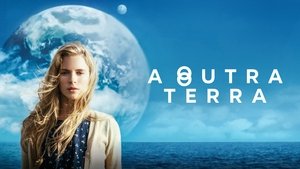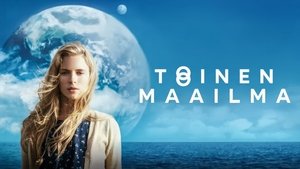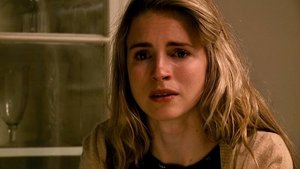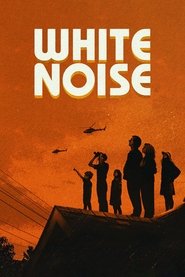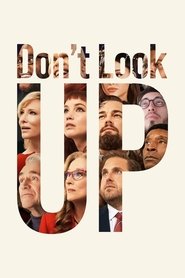Co-writers Mike Cahill (the film's director) and Brit Marling (the film's star) had one goal in mind when crafting their debut feature film Another Earth, they wanted to make the audience feel something real. After a screening of the young duo's movie at The Franklin Institute in Philadelphia, the director and lead actress were in house to welcome questions from members of the Philadelphia Film Society and the Science community. After hearing their responses to the audience's questions, it's clearly evident that Cahill and Marling hope to inspire. And even if Another Earth only manages to be seen by a small portion of the population, the film will certainly do its job.
Rhoda Williams (Brit Marling) is a free spirited 17 year old girl living a life filled with endless possibilities. She has a deep love and respect for science, and her passion has helped land her a scholarship to MIT. One evening while driving home from a party, Rhoda hears an astonishing discovery on a radio station. Having never been able to see it before, another planet with glaring similarities to Earth appears in the sky. Desperate to catch a glimpse, the careless teenager takes her attention from the road and it results in a horrific car accident killing the wife and child of John Burroughs (William Mapother). After serving a four year prison term for her actions (she had been drinking that evening), Rhoda has trouble rejoining civilization and forgiving herself for what she's done. She hopes to find reconciliation in the form of the other Earth.

Many will attempt to classify Another Earth as a science fiction film, but that's far from the truth. The movie, at its core, centers around some of life's deepest and darkest emotions. The director Mike Cahill cleverly uses an astronomy based backdrop to open up an infinite number of possibilities for the movie. With a huge underlying theme of redemption, Another Earth introduces the notion of parallel universes to create inner turmoil for Brit Marling's character. And offering more questions than answers, the film challenges its characters and the audience to open their minds. Cahill indirectly stirs a debate between which life is better, the one not lived, or the tragic one that has ultimately shaped the person you've become? It's quite perplexing and extremely thought provoking.
Some viewers will watch Another Earth and be unforgiving of it's obvious and plentiful amount of plot holes. The film is by no means perfect. It's slow paced at times, and feels more like a two hour marathon than it's actual 92 minute length. But what co-writers Mike Cahill and Brit Marling hoped to create wasn't an entertaining, scientific phenomenon. Another Earth is meant to be a quest in self discovery, and from that perspective it definitely succeeds. The film is brilliantly acted with excellent cinematography. Moreover, the ending is absolutely mind blowing, and it will stick with you for days. It looks as though Cahill and Marling have bright futures ahead.
-
 NameBrit MarlingCharacterRhoda Williams
NameBrit MarlingCharacterRhoda Williams -
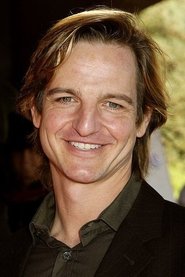 NameWilliam MapotherCharacterJohn Burroughs
NameWilliam MapotherCharacterJohn Burroughs -
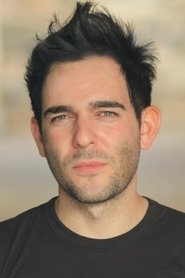 NameMatthew-Lee ErlbachCharacterAlex
NameMatthew-Lee ErlbachCharacterAlex -
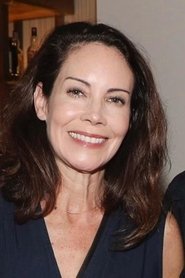 NameMeggan LennonCharacterMaya Burroughs
NameMeggan LennonCharacterMaya Burroughs -
 NameAJ DianaCharacterAmos Burroughs
NameAJ DianaCharacterAmos Burroughs -
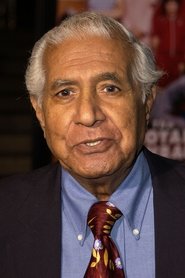 NameKumar PallanaCharacterPurdeep
NameKumar PallanaCharacterPurdeep -
 NameBruce ColbertCharacterSymposium Speaker
NameBruce ColbertCharacterSymposium Speaker -
 NamePaul S. MezeyCharacterSymposium Speaker
NamePaul S. MezeyCharacterSymposium Speaker -
 NameAna ValleCharacterSymposium Speaker
NameAna ValleCharacterSymposium Speaker -
 NameJeffrey GoldenbergCharacterSymposium Speaker
NameJeffrey GoldenbergCharacterSymposium Speaker -
 NameJoseph A. BoveCharacterSymposium Speaker
NameJoseph A. BoveCharacterSymposium Speaker -
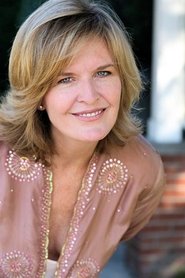 NameJordan BakerCharacterKim Williams
NameJordan BakerCharacterKim Williams -
 NameFlint BeverageCharacterRobert Williams
NameFlint BeverageCharacterRobert Williams -
 NameDJ FlavaCharacterHimself (voice)
NameDJ FlavaCharacterHimself (voice) -
 NameRobin Lord TaylorCharacterJeff Williams
NameRobin Lord TaylorCharacterJeff Williams -
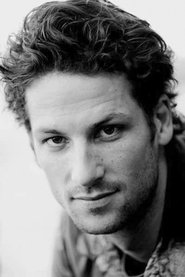 NameRupert ReidCharacterKeith Harding (voice)
NameRupert ReidCharacterKeith Harding (voice) -
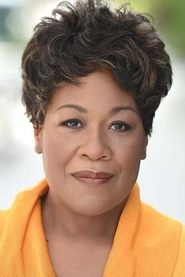 NameNatalie CarterCharacterCareer Counselor
NameNatalie CarterCharacterCareer Counselor -
 NameRichard BerendzenCharacterHimself
NameRichard BerendzenCharacterHimself -
 NameShannon MaliffCharacterHigh School Girl
NameShannon MaliffCharacterHigh School Girl -
 NameStephanie Le BlancCharacterHigh School Girl
NameStephanie Le BlancCharacterHigh School Girl -
 NameJasmine AndradeCharacterHigh School Girl
NameJasmine AndradeCharacterHigh School Girl -
 NameKara TweedieCharacterHigh School Girl
NameKara TweedieCharacterHigh School Girl -
 NameAna Cruz KayneCharacterClaire
NameAna Cruz KayneCharacterClaire -
 NameYuval SegalCharacterTelevision Reporter (voice)
NameYuval SegalCharacterTelevision Reporter (voice) -
 NameDiane CieslaCharacterDr. Joan Tallis
NameDiane CieslaCharacterDr. Joan Tallis -
 NameRobert PhillipsCharacterRadio Reporter #1 (voice)
NameRobert PhillipsCharacterRadio Reporter #1 (voice) -
 NameHollyce PhillipsCharacterTelevision Anchor (voice)
NameHollyce PhillipsCharacterTelevision Anchor (voice) -
 NameLuis VegaCharacterFederico
NameLuis VegaCharacterFederico -
 NameRich HabershamCharacterRadio Reporter #2 (voice)
NameRich HabershamCharacterRadio Reporter #2 (voice) -
 NameJennifer Jaramillo ValkanaCharacterNurse
NameJennifer Jaramillo ValkanaCharacterNurse -
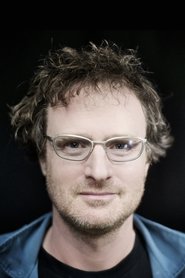 NameAri GoldCharacterConspiracy Theorist
NameAri GoldCharacterConspiracy Theorist -
 NameSteve GiammariaCharacterTelevision Interviewer (voice)
NameSteve GiammariaCharacterTelevision Interviewer (voice) -
 NameRebecca PriceCharacterKeith Harding's Secretary (voice)
NameRebecca PriceCharacterKeith Harding's Secretary (voice)
-
 NameMike CahillJobDirector
NameMike CahillJobDirector -
 NamePhil MossmanJobOriginal Music Composer
NamePhil MossmanJobOriginal Music Composer -
 NameMike CahillJobWriter
NameMike CahillJobWriter -
 NameBrit MarlingJobWriter
NameBrit MarlingJobWriter -
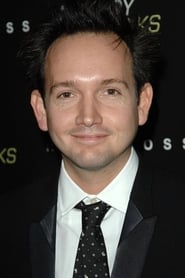 NameWill BatesJobOriginal Music Composer
NameWill BatesJobOriginal Music Composer -
 NameBrit MarlingJobProducer
NameBrit MarlingJobProducer -
 NameHunter GrayJobProducer
NameHunter GrayJobProducer -
 NameMike CahillJobProducer
NameMike CahillJobProducer -
 NameJames CalleriJobCasting
NameJames CalleriJobCasting -
 NameMike CahillJobEditor
NameMike CahillJobEditor -
 NameTyler BrodieJobExecutive Producer
NameTyler BrodieJobExecutive Producer -
 NameMike CahillJobDirector of Photography
NameMike CahillJobDirector of Photography -
 NameNicholas ShumakerJobProducer
NameNicholas ShumakerJobProducer -
 NamePaul DavisJobCasting
NamePaul DavisJobCasting -
 NamePaul S. MezeyJobExecutive Producer
NamePaul S. MezeyJobExecutive Producer -
 NameAileen Alvarez-DianaJobCostume Design
NameAileen Alvarez-DianaJobCostume Design -
 NameDarren FantonJobVisual Effects Supervisor
NameDarren FantonJobVisual Effects Supervisor -
 NameJames P. NicholsJobDolby Consultant
NameJames P. NicholsJobDolby Consultant -
 NameSasha AwnJobDialogue Editor
NameSasha AwnJobDialogue Editor -
 NameRyan PriceJobSupervising Sound Editor
NameRyan PriceJobSupervising Sound Editor -
 NameRyan PriceJobSound Re-Recording Mixer
NameRyan PriceJobSound Re-Recording Mixer -
 NameAdam FantonJobVisual Effects Supervisor
NameAdam FantonJobVisual Effects Supervisor -
 NameRyan PriceJobSound Designer
NameRyan PriceJobSound Designer -
 NameLiang CaiJobStill Photographer
NameLiang CaiJobStill Photographer -
 NameSonny PlesciaJobGaffer
NameSonny PlesciaJobGaffer -
 NameSebastian HenshawJobSound Effects Editor
NameSebastian HenshawJobSound Effects Editor -
 NameMarketa TomanovaJobScript Supervisor
NameMarketa TomanovaJobScript Supervisor -
 NameLiang CaiJobAssistant Director
NameLiang CaiJobAssistant Director -
 NamePhaedon A. PapadopoulosJobAssociate Producer
NamePhaedon A. PapadopoulosJobAssociate Producer -
 NameLiang CaiJobFirst Assistant Camera
NameLiang CaiJobFirst Assistant Camera -
 NamePhaedon A. PapadopoulosJobUnit Production Manager
NamePhaedon A. PapadopoulosJobUnit Production Manager -
 NamePhaedon A. PapadopoulosJobPost Production Supervisor
NamePhaedon A. PapadopoulosJobPost Production Supervisor -
 NameDarsi MonacoJobProduction Design
NameDarsi MonacoJobProduction Design -
 NameSteve GiammariaJobSupervising Dialogue Editor
NameSteve GiammariaJobSupervising Dialogue Editor -
 NameTomás DiazJobAssistant Production Coordinator
NameTomás DiazJobAssistant Production Coordinator -
 NameAlice BorrelliJobAssistant Editor
NameAlice BorrelliJobAssistant Editor -
 NameMichael GassertJobProduction Sound Mixer
NameMichael GassertJobProduction Sound Mixer -
 NameAileen Alvarez-DianaJobArt Direction
NameAileen Alvarez-DianaJobArt Direction -
 NameMorgan MarlingJobProduction Coordinator
NameMorgan MarlingJobProduction Coordinator -
 NameJames BrettellJobProduction Coordinator
NameJames BrettellJobProduction Coordinator -
 NameLiang CaiJobGaffer
NameLiang CaiJobGaffer -
 NameBrian RzepkaJobArt Direction
NameBrian RzepkaJobArt Direction -
 NameWill BatesJobMusician
NameWill BatesJobMusician -
 NamePhil MossmanJobMusician
NamePhil MossmanJobMusician -
 NameAileen Alvarez-DianaJobMakeup Effects
NameAileen Alvarez-DianaJobMakeup Effects -
 NameMarni GiannottiJobMakeup Effects
NameMarni GiannottiJobMakeup Effects -
 NameMarcello MontesantiJobAssistant Director
NameMarcello MontesantiJobAssistant Director -
 NameDarrell R. SmithJobDigital Intermediate Producer
NameDarrell R. SmithJobDigital Intermediate Producer -
 NameJoe GawlerJobDigital Intermediate Colorist
NameJoe GawlerJobDigital Intermediate Colorist -
 NameZak TuckerJobDigital Intermediate Colorist
NameZak TuckerJobDigital Intermediate Colorist -
 NameMolle DeBartoloJobDigital Intermediate Producer
NameMolle DeBartoloJobDigital Intermediate Producer -
 NameJonathan SandenJobDigital Intermediate Editor
NameJonathan SandenJobDigital Intermediate Editor











